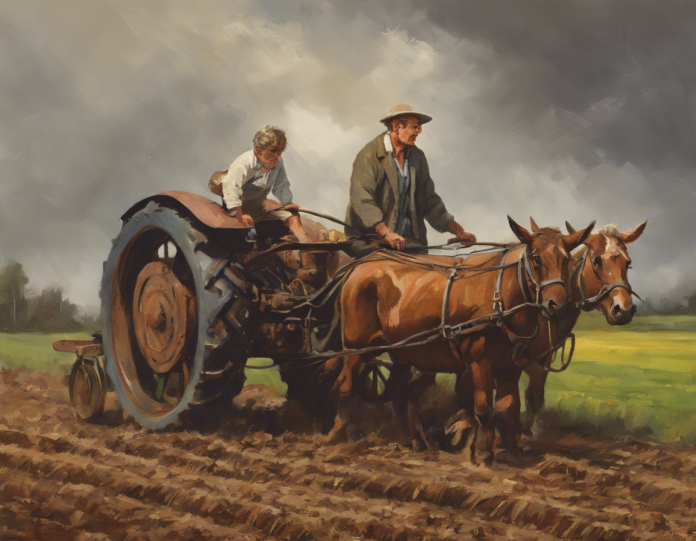Introduction
Ploughing with one's father – a timeless tradition that holds a special place in the hearts of many. The act of ploughing, whether on a small family farm or a larger agricultural operation, signifies not only the physical act of tilling the land but also the passing down of knowledge, skills, and values from one generation to the next. In this article, we will delve into the significance of ploughing with one's father, the history behind this tradition, the benefits it brings, and how it fosters a deep connection between fathers and their children.
The Significance of Ploughing with One's Father
Ploughing with one's father is a rite of passage for many young individuals, especially those raised in rural or agricultural communities. It is a way for fathers to pass down their wisdom and experience to their children, teaching them the importance of hard work, dedication, and stewardship of the land. The act of ploughing together fosters a sense of bonding and camaraderie between fathers and their children, creating memories that will last a lifetime.
History of Ploughing as a Tradition
The tradition of ploughing with one's father dates back centuries, rooted in agricultural practices passed down through generations. In agrarian societies, ploughing was a critical task that required skill, precision, and strength. Fathers would teach their sons how to properly handle and operate a plough, ensuring that the land was tilled effectively for planting crops.
Benefits of Ploughing with One's Father
Ploughing with one's father offers a multitude of benefits, both practical and emotional. From a practical standpoint, it allows children to learn essential agricultural skills that are vital for maintaining a farm or homestead. They learn how to properly operate machinery, assess soil conditions, and understand the importance of cultivating the land.
On an emotional level, ploughing together creates a sense of togetherness and shared accomplishment. The physical act of working side by side with one's father fosters a sense of pride and satisfaction, knowing that they are contributing to the family's livelihood. It also provides an opportunity for open communication and bonding, strengthening the relationship between fathers and their children.
Fostering a Deep Connection
Ploughing with one's father is more than just a task – it is a ritual that strengthens the bond between generations. The time spent working in the fields allows for meaningful conversations, shared experiences, and the passing down of family stories and memories. It creates a sense of continuity and legacy, ensuring that traditions are upheld and values are instilled in the next generation.
Tips for Ploughing with Your Father
- Listen and Learn: Be open to receiving guidance and advice from your father, who has years of experience to share.
- Communicate: Use this time in the field to talk and bond with your father, creating lasting memories.
- Take Pride in Your Work: Approach ploughing with a sense of purpose and dedication, knowing that you are contributing to the family's well-being.
- Ask Questions: Don't be afraid to ask questions and seek clarification on techniques or processes – learning is a continuous journey.
- Celebrate Achievements: Take the time to acknowledge and celebrate milestones and successes, no matter how small they may seem.
Frequently Asked Questions (FAQs)
- Why is ploughing with one's father considered a traditional practice?
-
Ploughing with one's father has been a tradition for generations, serving as a way to pass down knowledge and skills from one generation to the next.
-
What are the benefits of ploughing together as a family?
-
Ploughing together fosters bonding, teaches essential agricultural skills, and creates a sense of shared accomplishment and pride.
-
How can ploughing with one's father strengthen the father-child relationship?
-
Ploughing together allows for open communication, shared experiences, and the passing down of family stories and values, strengthening the bond between fathers and their children.
-
What role does ploughing play in teaching the next generation about agriculture?
-
Ploughing teaches children about the importance of stewardship of the land, proper soil cultivation, and the hard work that goes into maintaining a farm or homestead.
-
How can families continue the tradition of ploughing in modern times?
- Families can continue the tradition of ploughing by setting aside time to work together in the fields, sharing stories and experiences, and instilling a love for the land and agriculture in the next generation.
In conclusion, ploughing with one's father is not just about tilling the land – it is about passing down values, creating memories, and strengthening the bond between generations. This timeless tradition serves as a reminder of the enduring connection between family members and the land they cultivate together.


Recent comments